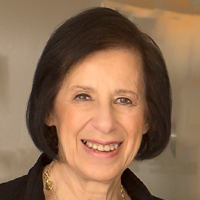Editor’s note: Karen Altfest is a longtime columnist with Rethinking65. Read more of her articles here.

Perhaps you have been asked by your university or an organization to mentor someone new to your profession.
I regularly have been invited to do so and have found the results to be immensely satisfying — mostly.
Realize that there are many opportunities for mentoring — one-on-one meetings with eager job seekers, discussions in large group settings where you might lecture with a follow-up Q&A session, or mentoring within your firm.
Here’s a look at the various options, followed by suggestions on how to successfully mentor colleagues.
One-on-One Mentoring
Mentoring one mentee at a time usually means listening to them and guiding them through opportunities in our industry by using your professional experience and knowledge. However, I once had a protégé who was not a part of my professional world and actually did not have a job nor a career plan in mind. He came to tell me that he was applying for a job at a major pharmaceutical company.
Knowing When to Part Ways
I encouraged this mentee to present his best self, to prepare a well-written resume, conduct a practice interview and compose some questions to ask about his targeted company. Then I asked him what job he was seeking. He replied, “Anything. I will tell them I would do anything they want me to do.”
I explained that instead he should talk about his knowledge, his experience, his interests and his goals. Expecting a potential employer to decide where he would fit into their expansive company would be more work for the employer and probably confusing as well.
After his brief interview with the pharmaceutical company, my mentee called to tell me he was not invited back. So, he moved on to another field, computers, and went to his next interview. He did not know what this company did, how the computers worked, or what job opportunities were available. This firm also was not interested in him as a candidate.
Soon after, I decided that I could not help this young man because he was not open to new ideas. He naively thought an employer would want him despite his lack of focused preparation and training in any particular field. He approached each interview with confidence and confusion.
Large Group Setting
Many of my other mentoring opportunities have yielded more positive results. Through my investment management and financial planning firm, I have been approached by several universities and some other organizations to speak to groups of students who would like to be entrepreneurs, become financial advisors, or work in their family’s businesses.
I have spoken in person at nearby universities and I have participated virtually at schools that are a distance from my base, New York City. I hope these sessions and the questions they generate have been as fulfilling for the protégés as they always are for me, as the mentor. They are often lively and mind-expanding, and I’m sometimes treated to a bag full of university swag. Of course, these sessions are typically pro-bono and they serve as a great way to pay forward your experience, knowledge and success.
Here Is My Secret Weapon
I frequently invite my son, Andrew, to speak, too. He is now president of our firm and more in touch with the software students use and the courses they take. And, of greatest interest to the protégés, Andrew knows what it is like to be the second generation in a family business.
His presence generates lots of questions. The common queries he receives from these student groups include: How did you get started? How did you know this was the career you wanted? How do you navigate working with relatives?
Mentoring Within Your Firm
Another type of mentoring that has brought me significant satisfaction is advising staff members. In my case, it’s our women staff members. Years ago, I took on this role and conducted quarterly sessions with women in our office. The topics I covered included the stress of balancing their home and work lives; client situations that stood out to them; and, more generally, women in the workforce.
I determined the topics, thought up questions for the group and kept the conversation moving during the sessions which I conducted over lunch (always at a wonderful restaurant). As the most senior woman at our office, I felt I was the natural choice to lead this group. But after I started the sessions, I got a lukewarm response from attendees. I was not encouraging the women to speak up freely. They were too mindful of what I would think.
Creating a More Comfortable Atmosphere
After a couple of years, I invited another senior woman to be co-leader — to come up with topics and to lead some of the discussions. This change was aimed at freeing the younger women to join the discussion, but they still mostly were mindful of what others would think of their remarks and many remained quiet.
Then I realized that our female staff had grown — not only through experience but also in their breadth of backgrounds. I asked two younger women if they would co-host the next mentoring meeting, and they did. They came up with a new topic; circulated reading materials; created a list of insightful questions; and led a lively, connected group.
At this meeting, no time was wasted, almost everyone had things to say, and we stayed on-topic more than before. We gained what I had long hoped for — tons of interest and involvement, meaningful conversation, sharing of experiences, learning and encouragement.
Further Tweaks
Now each quarter we have different speakers, new topics and engaged discussions. The sessions are led by one or two women at a time, and their colleagues join in. All sessions end with a discussion about how the topic relates to our firm.
I have learned so much about the topics, and about my staff members. I remain a mentor to our staff, I listen to the host(s) during preparations and guide them through their topic, their questions and their discussion. If their session hits a roadblock, they know they can call on me, and I will help them get back on track. But I am consciously not at the center of these meetings. I willingly take a back seat, knowing that achieving the results I long wanted are more significant.
Setting Up a Mentoring Session
If you decide to mentor, have a purpose in mind, something you want to accomplish. Yet, build in some flexibility for what people want to learn and share in a safe space.
Perhaps you want to train your staff to accomplish certain tasks. Or you may want to offer support so they can develop more confidence. Likely, there are skills or knowledge you want them to learn. Maybe facilitating bonding between peers is important to you.
Draw up what your sessions could look like. Think about goals, frequency and topics. Pick some senior staff members to discuss how the meetings would go. Choose some less-experienced employees to test out whether the topics interest them. Learn to step back and encourage others to get involved. Make it pleasant — not a chore — for those involved.
Consider the Costs
Establishing a staff-mentoring project is likely to incur some costs. Here are a few to think about and prepare for.
- Your staff possibly will spend two hours on a mentoring discussion, temporarily taking them away from working on client financial plans.
- You may have to foot the cost of providing lunch, even in your office, for many employees.
- You may occasionally invite an outside speaker, who may charge a fee.
The Rewards of Mentoring Within Your Firm
At the same time, you’ll likely reap many benefits from sponsoring mentoring, including:
- Gaining a more cohesive group of employees.
- Helping women feel that their thoughts and feelings are valued.
- Achieving more insight into what your employees are thinking or struggling with.
- Pride among staff members chosen to lead the next mentoring session.
- Trust among members of the group that they are being heard.
- More positive attitudes among employees.
Your protégés grow and win when you mentor and, as an added benefit, you can win, too. Let the information and feelings flow, listen to your employees and learn along with them.
Karen Caplan Altfest, PhD, CFP, is a principal advisor at Altfest Personal Wealth Management. She helps many of the firm’s clients with a variety of investment and financial planning issues and specializes in helping women clients and widows. Karen’s Financially Savvy Woman programs, including the Women’s Financial $pa,TM are popular with clients. Her focus is to educate and empower women.







